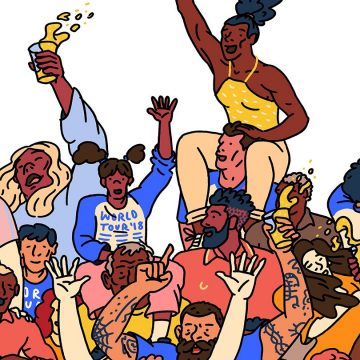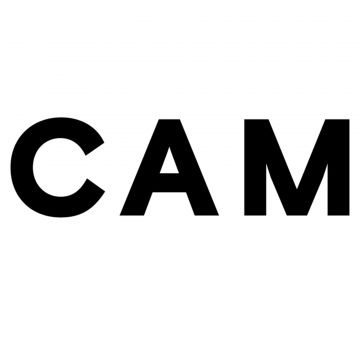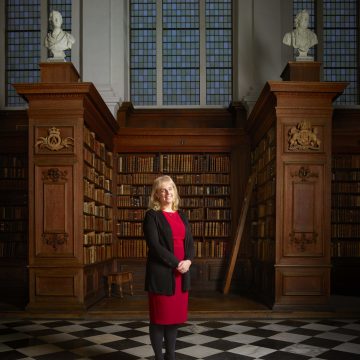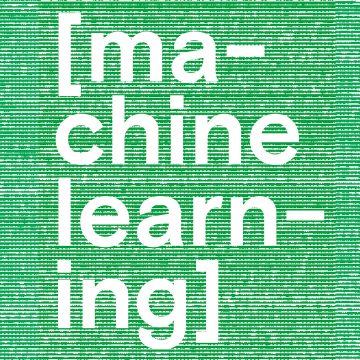‘It is likely that democracy will fail in the 21st century’
When all seems new, we need more history, says Professor David Runciman, Head of the Department of Politics and International Studies and a Fellow of Trinity Hall.

Because I write and teach about politics for a living, people sometimes ask whether I’ve relished the last couple of years. Even if Trump is bad for the world, isn’t he good for my line of business? It’s true that demand is definitely up. What once seemed like technical or academic questions have exploded into life. The minute workings of the American constitution can now seem like life-and-death issues. Events about Britain’s relationship with Europe that would once have attracted 20 people now pull in crowds of 200 or more.
How democracy works matters for all of us in a way that it hasn’t before in my adult lifetime. But the bigger question is whether it still works at all. That is much harder to answer. In tumultuous times, there are twin temptations in how we think about what’s happening. The first is to look for historical precedents that will map where we are heading. The second is to assume that no one has ever lived through anything like this before and that what we are facing is a future that is entirely new.
As a historian, I feel we currently have too much history informing our worries about politics, but not enough informing our worries about technology.
At the moment, I think the first is a bigger danger than the second. As democracy wobbles, we look to the 20th century for evidence of what will make it collapse. I have lost count of the number of times I have seen our current predicament compared to what happened to democracy in the 1930s. I am convinced that this is a big mistake. Though there are unpleasant echoes of earlier instances of democratic failure in what’s happening now – in the rise of racist rhetoric, the spread of conspiracy theories, the deep mistrust of mainstream institutions – they happened in societies that are fundamentally different from ours. The differences matter more than the similarities.
The way to Denmark
We live in a world that is much richer, older, more peaceful and more networked than anything that existed 50 years ago, let alone 100. That does not mean our democracies can’t fail: they can, and at some point they almost certainly will. It may even be happening before our eyes. But far from following the familiar pattern of military takeover or collapse in the rule of law, it is likely that democracy will fail in the 21st century in ways that we are not yet familiar with. Our democracies will not implode. But they may simply fade away, hollowed out by forces of technological progress and social division that we lack the power to understand, never mind resist.
Political scientists still like to describe democratic failure in terms of what they call ‘backsliding’: going back to a time when strongmen ruled the Earth. We need to consider what it means for democracies to fail forwards, tumbling into an unknown future. A few years ago, Francis Fukuyama popularised the idea that the central question of social science was ‘How to get to Denmark?’, the world’s most liveable society. I think the central question now is what it would mean for Denmark to fail. Even the Danes don’t have a clue on that one.
Yet, at the same time, we need to resist the other temptation too. In so far as what is happening is being driven by new technology – including the rise of intelligent machines – we risk thinking that nothing like this has ever been known before. As a historian, I feel we currently have too much history informing our worries about politics, but not enough informing our worries about technology. Many of the fears people express about the coming of the robots – the rise of heartless, conscienceless, super-capable machines – are the ones they’ve had about corporations for hundreds of years. In this case, we really have been here before.
In these uncertain times, it’s hard to come up with a rule of thumb to guide us. Still, mine would be this. Where history currently speaks loudest is where we should be open to the idea that what is happening is new. Where it all seems new is where we need more history.
David Runciman’s new book How Democracy Ends (Profile, UK; Basic Books, US) will be published in May. He leads the democracy research strand at the Leverhulme Centre for the Future of Intelligence, which is exploring the social and political impact of AI.







